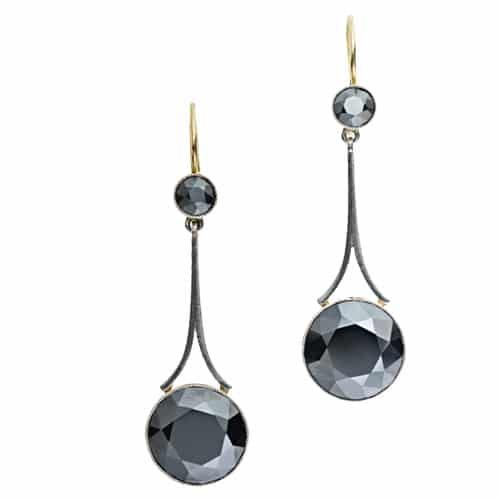
Hematite derives its name from the Greek word haema for blood. Thinly sliced hematite is a reddish color and, when rubbed against a scratch plate, hematite leaves a red streak. While popular in antiquity as a protection against bleeding during the Egyptian era hematite was carved as seals for rings, as cameos for rings brooches and pendants, and for beads. It was used widely in the Victorian Era in mourning jewelry. Hematite continues to be popular today carved as intaglios for rings and strung as beads.
Gemological Information for Hematite
| Color: | Dark Silvery Gray to Black |
| Crystal Structure: | Hexagonal (trigonal) |
| Refractive Index: | 2.940 to 3.220 |
| Durability: | Excellent |
| Hardness: | 5.5 to 6.5 |
| Family: | |
| Similar Stones: | Glass or Plastic Imitations |
| Treatments: | None |
| Country of Origin: | England, Germany, Norway, Sweden, Switzerland, US |
Hematite Care
| Ultrasonic Cleaning: | Safe |
| Steam Cleaning: | Safe |
| Warm Soapy Water: | Safe |
| Chemical Attack: | Dissolves in Hydrochloric Acid |
| Light Sensitivity: | Stable |
| Heat Sensitivity: | Can Become Magnetized |
Sources
- Gem Reference Guide, Los Angeles: Gemological Institute of America, 1988. Pp. 134-135.
- Newman, Harold. An Illustrated Dictionary of Jewelry, New York: Thames and Hudson, 1981. Pp. 154.
- Schumann, Walter. Gemstones of the World, New York: Sterling Publishing, Co., 1977. Pp. 162.